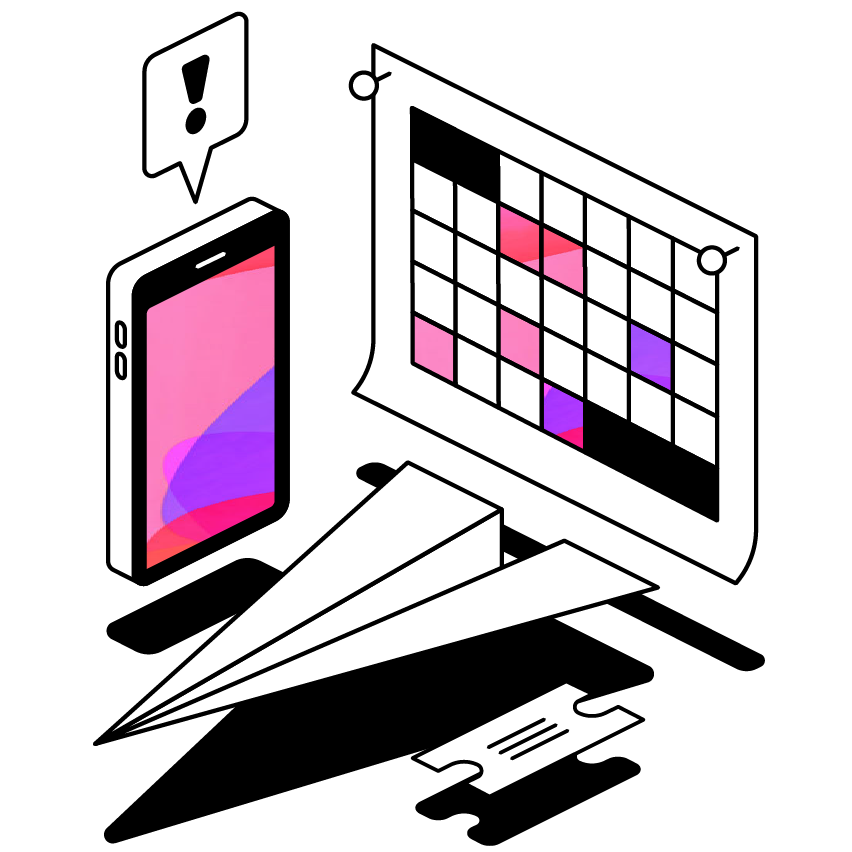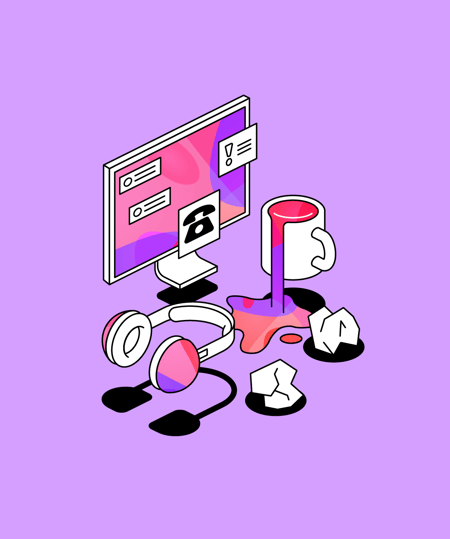Empowering non traditional students through inclusive support in California
Explore how California colleges leverage technology and AI to support non-traditional students. Guest speakers, Will Pines and Bianca Hernandez, discuss how their institutions are enhancing accessibility and fostering inclusive education through tools like Genio and universal design.
 3 min read
3 min read
 Published: 10 Jul 2025
Published: 10 Jul 2025
 Phoebe Hoar
Phoebe Hoar


The landscape of higher education is continually evolving, with a significant shift towards a "new majority" of non-traditional learners. These students bring diverse backgrounds and unique challenges that demand innovative support strategies.
Recently, we gathered experts from California institutions in a webinar to delve into practical insights and successful initiatives aimed at empowering these students and enhancing academic support. Our panel featured Will Pines, Accessible Technology Specialist at UC Riverside, and Bianca Hernandez, Alternate Media Specialist at Cabrillo College, alongside Mais and Connor from Genio.
Understanding the new majority learner in California
The discussion opened by highlighting a crucial statistic: an estimated 93% of students in U.S. higher education are now classified as non-traditional learners. This group includes individuals over 22, those working while studying, parents, veterans, neurodiverse learners, and first-generation college students. This demographic shift has profound implications for teaching, learning, and student support.
California's student population particularly reflects this trend, with a significantly higher percentage of mature students (over 22) and part-time students compared to the national average. Historically underserved, these learners often face barriers such as affordability challenges, lack of study skills, or ingrained stigma. As Connor emphasized, "what used to be the non-traditional learner has now become the new majority".
Evolving from traditional to tech-integrated, proactive support
Both Will and Bianca shared how student support has transformed at their institutions. Will Pines of UC Riverside noted that prior to Genio, options for integrated audio recording and note taking were limited, often requiring students to juggle multiple technologies to achieve what Genio now embodies in one resource. He highlighted the significant improvement in access for audio learners and those with recording accommodations.
Bianca Hernandez from Cabrillo College described the evolution as "more tech integrated, flexible and proactive." Her institution has moved away from "one size fits all accommodations" to offering tools like Genio that promote independence, skill building, and "personalised learning strategies". The pandemic, she noted, accelerated this shift, forcing a rethinking of access and equity in remote learning environments.
A key challenge during this transition was meeting students where they were, especially those less technologically literate or returning after a long time away from school. Will emphasized the importance of leveraging existing familiar technologies and coupling them with effective strategies, rather than overwhelming students with new tools.
Targeted initiatives for non-traditional students
Institutions are actively developing programs to support these diverse learners. Bianca shared Cabrillo College's focus on supporting "marginalised communities on campus," including first-generation, veteran, neurodiverse, and returning students.
A significant goal is to destigmatize seeking help, as many students, including Bianca in her own student days, are hesitant to approach disability services. Their office maintains an 'open door policy' to educate and bring awareness to student situations and learning styles.
UC Riverside, as described by Will, is focusing on note taking skills programs in collaboration with their academic resource department, hoping to incorporate Genio's note taking course as a resource for all students. He also highlighted a 'boot camp' program developed by one of UC Riverside's disability specialist, which covers crucial resources for students with disabilities, transitioning students, student parents, and first-generation and international students. Their week long boot camp covers everything from registering with the office to access technology and time management.
How can AI be used to enhance accessibility?
The prevalence of AI was a major topic. Bianca acknowledged that AI offers "powerful tools for accessibility and personalisation," especially for non-traditional learners. Her office embraces AI, integrating it into their academic support toolkit while educating students on "responsible, ethical way to use it," including data privacy and academic integrity.
She stressed that "AI is not a replacement for human support; it's more of like an enhancement". Bianca also championed transparency with faculty regarding AI use, explaining that tools like transcription apps are already being used by students, and open communication can alleviate fears.
Will added that student conduct codes and loan agreements for authorized software explicitly outline what students can and can't do regarding recording, ensuring awareness and accountability. The discussion emphasized the importance of data privacy with AI tools and advocated for institutions to ask critical questions about data handling and security.
The future of student support: Adaptability and universal design
Looking ahead, Bianca believes the future of student support will move away from "rigid systems" that expect students to adapt to the institution, towards "building systems that adapt to students diverse needs and strengths". She aims to continue strategically implementing AI and assistive technologies, promoting collaborative learning, and offering resources that fit students' "real lives".
Will is excited about continuing work with UC Riverside's school of medicine to make virtual diagnostic systems accessible and expanding support for grad students with disabilities. He's also personally exploring incorporating 3D printing into services, such as creating chemistry models for visually impaired students.
The impact of such initiatives is tangible: Volunteer State Community College saw an 11% increase in student retention among first-year students using Genio compared to those who weren't, highlighting the power of universal support.
Key Takeaways
California institutions are at the forefront of adapting to the evolving needs of the new majority learner. By embracing technology, fostering transparency around AI, promoting universal design, and building collaborative support networks, they are creating more inclusive and empowering learning environments. The insights shared by Bianca and Will underscore a commitment to meeting students where they are, ensuring every learner has the tools and confidence to expand what's possible through their educational journey.
More from Supporting Students
View All
 2 min read
2 min read
How AI note taking tools can bridge learning gaps for STEM students with disabilities
Here, we explore how AI powered note taking tools act as a critical scaffold for STEM students with disabilities, helping with active conceptual engagement. This post breaks down how live transcripts and AI-generated retrieval practice. like quizzes, empower students to navigate technical subjects with full academic independence.

 3 min read
3 min read
How Genio Present can help students become more confident speakers
Students with anxiety or Specific Learning Differences can struggle to participate in oral assessments confidently and equitably. Learn how Genio Present helps students overcome public speaking anxiety, transforming nervousness into confidence and improving academic performance through innovative rehearsal techniques based on learning science.

 5 min read
5 min read
6 accessible learning apps for college students in 2026
Selecting tools that bridge accessibility and independence can be a transformative step in a student’s academic journey, fostering skills that last long after graduation. Here, we explore 2026’s top accessible learning apps, which empower students by automating unproductive barriers while preserving the deep, active engagement essential for true learning.





